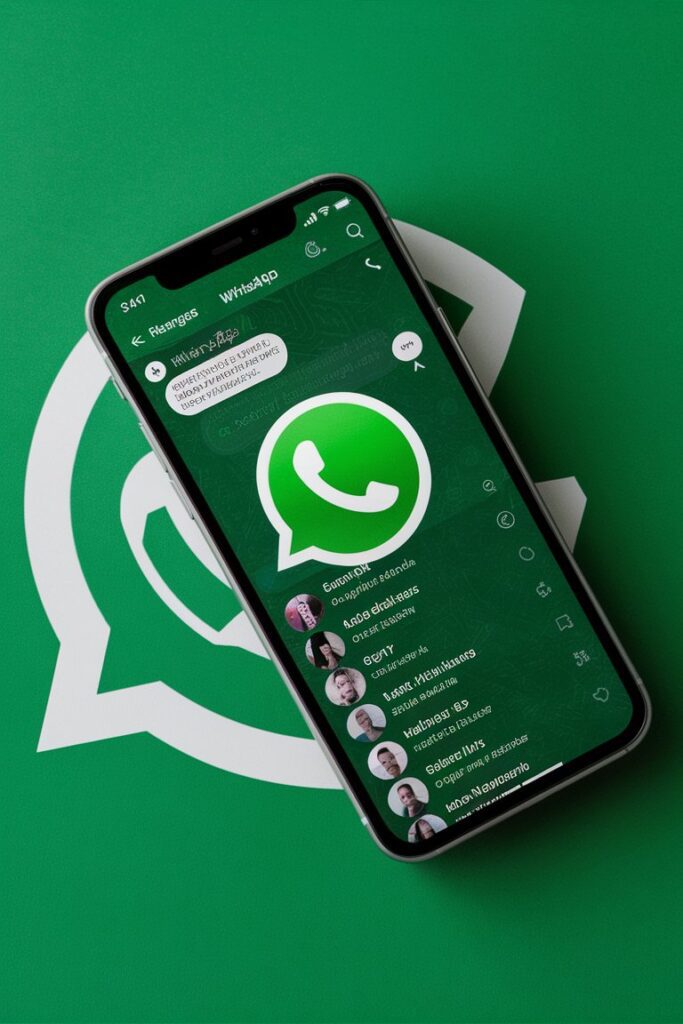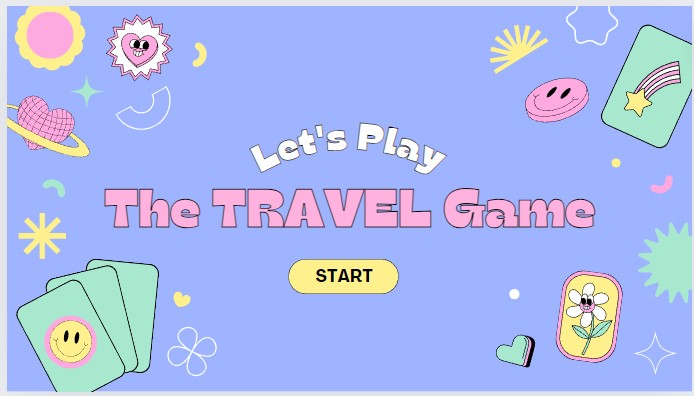The below case study will give in detail about the early stage of WhatsApp with a brief Business Case Study on WhatsApp. The study shows how through smart tactics, it dominated its competitors and expanded its reach globally. Click here to install it.

Introduction on Business Case Study on WhatsApp
WhatsApp, founded in 2009 by Brian Acton and Jan Koum, has emerged as one of the most popular messaging apps globally. Initially developed as a solution for personal messaging, WhatsApp quickly gained traction due to its simplicity, reliability, and commitment to user privacy. This Business Case Study on Whatsapp explores WhatsApp’s journey from a startup to a global messaging powerhouse, analyzing its founding principles, strategic decisions, and impact on the messaging app landscape.
Background
Before the emergence of WhatsApp, the messaging app market was fragmented, with various players offering different features and capabilities. Traditional SMS messaging was costly, especially for international communication, and lacked the multimedia capabilities users increasingly desired. Additionally, concerns over data privacy and security were growing, particularly in the wake of increasing surveillance and data breaches.

WhatsApp entered this landscape with a clear vision: to provide a simple, secure, and cost-effective messaging solution that prioritized user privacy. Leveraging advancements in smartphone technology and internet connectivity, WhatsApp aimed to disrupt the traditional telecom industry and revolutionize the way people communicated.

Early Success and Growth
The Case Study on WhatsApp depicts the early success of founders of WhatsAPP. Brian Acton and Jan Koum, both former employees of Yahoo, founded WhatsApp with a focus on simplicity and user experience. The app initially offered basic messaging features, such as text and photo sharing, but distinguished itself through its clean interface, fast performance, and commitment to user privacy. WhatsApp’s ad-free, subscription-based model appealed to users wary of intrusive advertising and data mining.
Through word-of-mouth marketing and a relentless focus on product quality, WhatsApp rapidly gained popularity, especially among international users seeking affordable alternatives to SMS. The app’s cross-platform compatibility further fueled its growth, allowing users to communicate seamlessly across different devices and operating systems.
Unique Selling Proposition of WhatsApp’s success:
Simplicity: WhatsApp’s user interface was intuitive and easy to navigate, making it accessible to users of all ages and technical backgrounds.
Privacy: WhatsApp’s end-to-end encryption ensured that messages could only be read by the intended recipients, protecting user privacy from eavesdroppers and hackers.
Cross-Platform Compatibility: WhatsApp’s availability on multiple platforms, including iOS, Android, and web browsers, facilitated widespread adoption and seamless communication.
Cost-Effectiveness: WhatsApp’s subscription-based model offered a cost-effective alternative to traditional SMS messaging, especially for international communication.
By focusing on these core principles, WhatsApp differentiated itself from competitors and established a loyal user base that continued to grow exponentially.
Read More Case Studies
Monetization Strategy
In its early years, WhatsApp prioritized user growth and experience over monetization. The app initially offered a free trial period, after which users were required to pay a nominal subscription fee to continue using the service. This revenue model allowed WhatsApp to sustain its operations and invest in product development without resorting to intrusive advertising or data mining.
However, WhatsApp’s monetization strategy evolved following its acquisition by Facebook in 2014. While WhatsApp remained ad-free, Facebook introduced new revenue streams, such as business accounts and enterprise solutions, aimed at generating revenue from businesses and organizations using the platform for customer communication and marketing.
Read More Case Studies
Acquisition by Facebook
In February 2014, Facebook announced its acquisition of WhatsApp for $19 billion, making it one of the largest acquisitions in tech industry history. The acquisition was driven by Facebook’s desire to expand its user base, particularly in emerging markets where WhatsApp was dominant. Despite initial concerns over potential changes to WhatsApp’s privacy policies and business model, Facebook assured users that WhatsApp would continue to operate independently and prioritize user privacy.
The acquisition provided WhatsApp with access to Facebook’s resources and infrastructure, enabling further investment in product development, infrastructure, and international expansion. Additionally, WhatsApp benefited from synergies with other Facebook-owned platforms, such as Instagram and Messenger, leading to integration of features and services across the Facebook ecosystem.
How Whatsapp tackles its global competition
WhatsApp has maintained its position as a dominant player in the messaging app market by employing several strategies to tackle global competition. Here’s how WhatsApp has navigated competition on a global scale:
Focus on User Experience: WhatsApp prioritizes user experience by offering a simple, intuitive interface and reliable messaging service. The app’s ease of use and fast performance have contributed to its widespread adoption and user loyalty, allowing WhatsApp to compete effectively with other messaging apps.
Commitment to Privacy and Security: WhatsApp differentiates itself from competitors by prioritizing user privacy and security. The implementation of end-to-end encryption ensures that messages, calls, and media shared on the platform are encrypted and secure, protecting user privacy from unauthorized access. This commitment to privacy has resonated with users concerned about data security and surveillance, giving WhatsApp a competitive advantage.
Cross-Platform Compatibility: WhatsApp’s availability on multiple platforms, including iOS, Android, and web browsers, facilitates seamless communication across different devices and operating systems. This cross-platform compatibility enhances WhatsApp’s accessibility and convenience, allowing users to communicate with friends and family regardless of their device or location.
Global Expansion and Localization: WhatsApp has pursued aggressive expansion into international markets, particularly in developing countries where mobile internet penetration is growing rapidly. The app’s lightweight, data-efficient design makes it well-suited for emerging markets with limited internet connectivity and smartphone adoption. Additionally, WhatsApp has invested in localization efforts, offering support for multiple languages, dialects, and regional preferences to cater to diverse demographics and cultural contexts.
Innovations and Feature Enhancements: WhatsApp continues to innovate and introduce new features to enhance user experience and engagement. Key innovations, such as voice calling, video calling, and group messaging, have expanded the app’s capabilities and solidified its position as a leading messaging platform. By continuously improving its features and functionality, WhatsApp stays competitive and relevant in the ever-evolving messaging app landscape.
Integration with Facebook Ecosystem: WhatsApp’s acquisition by Facebook has enabled integration with other Facebook-owned platforms, such as Instagram and Messenger, expanding its reach and capabilities. Integration allows users to seamlessly share content and communicate across platforms, enhancing the overall user experience and increasing user engagement. This integration strengthens WhatsApp’s competitive position by leveraging the resources and infrastructure of the broader Facebook ecosystem.
Partnerships and Collaborations: WhatsApp collaborates with businesses, organizations, and governments to enhance its offerings and reach new audiences. Strategic partnerships allow WhatsApp to leverage complementary services and resources, expand its user base, and drive revenue growth. By forging partnerships with telecom operators, financial institutions, and government agencies, WhatsApp strengthens its position in the market and creates value for users and stakeholders.
Overall, WhatsApp tackles global competition by focusing on user experience, privacy, innovation, expansion, integration, and collaboration. These strategies have enabled WhatsApp to maintain its dominance in the messaging app market and continue to drive growth and innovation in the digital communication space.
Expansion and Global Reach
WhatsApp’s acquisition by Facebook accelerated its expansion into international markets, particularly in developing countries where mobile internet penetration was growing rapidly. WhatsApp’s lightweight, data-efficient design made it well-suited for emerging markets with limited internet connectivity and smartphone adoption.
WhatsApp invested heavily in localization efforts, offering support for multiple languages, dialects, and regional preferences. Features such as voice messaging and WhatsApp Web further enhanced the app’s appeal and accessibility across diverse demographics.
However, WhatsApp also faced challenges in expanding into markets with regulatory barriers and entrenched competitors. Concerns over data privacy, encryption, and government surveillance prompted regulatory scrutiny in some regions, requiring WhatsApp to adapt its policies and operations to comply with local regulations while maintaining its commitment to user privacy.
Innovations and Features
Throughout its evolution, WhatsApp continued to innovate and introduce new features to enhance user experience and engagement. Key innovations included:
End-to-End Encryption: WhatsApp’s implementation of end-to-end encryption in 2016 ensured that messages, calls, and media shared on the platform were encrypted and secure, protecting user privacy from unauthorized access.
Voice Calling and Video Calling: WhatsApp’s introduction of voice calling in 2015 and video calling in 2016 expanded the app’s capabilities beyond text messaging, allowing users to communicate in real-time using voice and video.
Group Messaging: WhatsApp’s group messaging feature enabled users to create and participate in group chats with friends, family, and colleagues, facilitating collaboration and communication among multiple users.
These innovations further solidified WhatsApp’s position as a leading messaging platform and drove continued user growth and engagement.
Privacy and Security
WhatsApp has faced scrutiny and criticism over its privacy and security practices, particularly following its acquisition by Facebook. Concerns have been raised regarding data sharing between WhatsApp and Facebook, as well as the potential impact on user privacy and data protection.
In response to these concerns, WhatsApp has reaffirmed its commitment to user privacy and encryption, emphasizing that messages sent on the platform are end-to-end encrypted and cannot be accessed by WhatsApp or Facebook. However, WhatsApp has also introduced new features and policies aimed at enhancing user control and transparency, such as privacy settings, data portability, and transparency reports.
Despite these efforts, WhatsApp continues to face challenges in balancing user privacy with regulatory requirements and business interests, particularly in the context of increasing government surveillance and data localization laws.
Impact and Influence
WhatsApp’s impact on the messaging app landscape has been profound, reshaping the way people communicate and interact online. The app’s simplicity, reliability, and commitment to privacy have made it a preferred choice for billions of users worldwide, driving significant changes in communication patterns and social behavior.
WhatsApp’s success has also influenced competitors and industry trends, prompting rival messaging apps to emulate its features and business model. Additionally, WhatsApp’s integration with other Facebook-owned platforms has expanded its reach and capabilities, further solidifying its position as a dominant player in the messaging app market.
Conclusion
In conclusion, WhatsApp’s journey from a startup to a global messaging powerhouse exemplifies the power of simplicity, innovation, and user-centric design. By prioritizing user experience and privacy, WhatsApp has built a loyal user base and disrupted the traditional telecom industry. Despite facing challenges and controversies along the way, WhatsApp remains a dominant force in the messaging app market, driving continued innovation and shaping the future of digital communication.
References
- WhatsApp Blog: https://blog.whatsapp.com/
- Facebook Newsroom: https://newsroom.fb.com/


